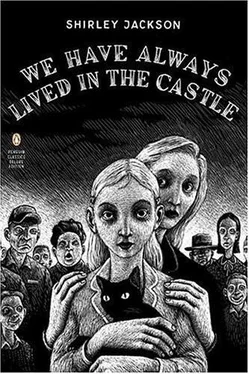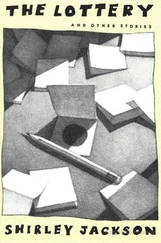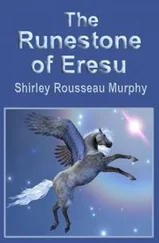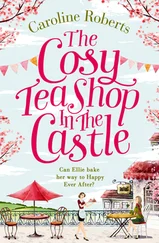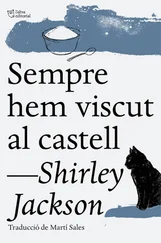Shirley Jackson - We Have Always Lived in the Castle
Здесь есть возможность читать онлайн «Shirley Jackson - We Have Always Lived in the Castle» весь текст электронной книги совершенно бесплатно (целиком полную версию без сокращений). В некоторых случаях можно слушать аудио, скачать через торрент в формате fb2 и присутствует краткое содержание. Город: New York, Год выпуска: 2006, ISBN: 2006, Издательство: Penguin Books, Жанр: Триллер, gothic_novel, на английском языке. Описание произведения, (предисловие) а так же отзывы посетителей доступны на портале библиотеки ЛибКат.
- Название:We Have Always Lived in the Castle
- Автор:
- Издательство:Penguin Books
- Жанр:
- Год:2006
- Город:New York
- ISBN:978-1-101-53065-8
- Рейтинг книги:3 / 5. Голосов: 1
-
Избранное:Добавить в избранное
- Отзывы:
-
Ваша оценка:
- 60
- 1
- 2
- 3
- 4
- 5
We Have Always Lived in the Castle: краткое содержание, описание и аннотация
Предлагаем к чтению аннотацию, описание, краткое содержание или предисловие (зависит от того, что написал сам автор книги «We Have Always Lived in the Castle»). Если вы не нашли необходимую информацию о книге — напишите в комментариях, мы постараемся отыскать её.
is a deliciously unsettling novel about a perverse, isolated, and possibly murderous family and the struggle that ensues when a cousin arrives at their estate.
We Have Always Lived in the Castle — читать онлайн бесплатно полную книгу (весь текст) целиком
Ниже представлен текст книги, разбитый по страницам. Система сохранения места последней прочитанной страницы, позволяет с удобством читать онлайн бесплатно книгу «We Have Always Lived in the Castle», без необходимости каждый раз заново искать на чём Вы остановились. Поставьте закладку, и сможете в любой момент перейти на страницу, на которой закончили чтение.
Интервал:
Закладка:
“What would he have been wearing on the last day with them? What tie did he have on at dinner? He would surely like to have it remembered.”
She looked at me for a minute, not smiling. “It would hardly have been one of these; when I came to get him afterwards, at the hospital, he was wearing pajamas and a robe.”
“Perhaps he should have one of these suits now.”
“He was probably buried in an old suit of Jim Clarke’s.” Constance started for the cellar, and then stopped. “Merricat?”
“Yes, Constance?”
“Do you realize that these things of Uncle Julian’s are the only clothes left in our house? All of mine burned, and all of yours.”
“And everything of theirs in the attic.”
“I have only this pink dress I have on.”
I looked down. “And I am wearing brown.”
“And yours needs washing, and mending; how can you tear your clothes so, my Merricat?”
“I shall weave a suit of leaves. At once. With acorns for buttons.”
“Merricat, be serious. We will have to wear Uncle Julian’s clothes.”
“I am not allowed to touch Uncle Julian’s things. I shall have a lining of moss, for cold winter days, and a hat made of bird feathers.”
“That may be all very well for the moon, Miss Foolishness. On the moon you may wear a suit of fur like Jonas, for all of me. But right here in our house you are going to be clothed in one of your Uncle Julian’s old shirts, and perhaps his trousers too.”
“Or Uncle Julian’s bathrobe and pajamas, I suppose. No; I am not allowed to touch Uncle Julian’s things; I will wear leaves.”
“But you are allowed. I tell you that you are allowed.”
“No.”
She sighed. “Well,” she said, “you’ll probably see me wearing them.” Then she stopped, and laughed, and looked at me, and laughed again.
“Constance?” I said.
She put Uncle Julian’s clothes over the back of a chair, and, still laughing, went into the pantry and opened one of the drawers. I remembered what she was after and I laughed too. Then she came back and put an armload of tablecloths down beside me.
“These will do you very nicely, elegant Merricat. Look; how will you feel in this, with a border of yellow flowers? Or this handsome red and white check? The damask, I am afraid, is too stiff for comfort, and besides it has been darned.”
I stood up and held the red and white checked tablecloth against me. “You can cut a hole for my head,” I said; I was pleased.
“I have no sewing things. You will simply have to tie it around your waist with a cord or let it hang like a toga.”
“I will use the damask for a cloak; who else wears a damask cloak?”
“Merricat, oh, Merricat.” Constance dropped the tablecloth she was holding and put her arms around me. “What have I done to my baby Merricat?” she said. “No house. No food. And dressed in a tablecloth; what have I done ?”
“Constance,” I said, “I love you, Constance.”
“Dressed in a tablecloth like a rag doll.”
“Constance. We are going to be very happy, Constance.”
“Oh, Merricat,” she said, holding me.
“Listen to me, Constance. We are going to be very happy.”
I dressed at once, not wanting to give Constance more time to think. I chose the red and white check, and when Constance had cut a hole for my head I took my gold cord with the tassel that Constance had cut from the drawing-room drapes and tied it around me for a belt and looked, I thought, very fine. Constance was sad at first, and turned away sadly when she saw me, and scrubbed furiously at the sink to get my brown dress clean, but I liked my robe, and danced in it, and before long she smiled again and then laughed at me.
“Robinson Crusoe dressed in the skins of animals,” I told her. “He had no gay cloths with a gold belt.”
“I must say you never looked so bright before.”
“You will be wearing the skins of Uncle Julian; I prefer my tablecloth.”
“I believe the one you are wearing now was used for summer breakfasts on the lawn many years ago. Red and white check would never be used in the dining room, of course.”
“Some days I shall be a summer breakfast on the lawn, and some days I shall be a formal dinner by candlelight, and some days I shall be—”
“A very dirty Merricat. You have a fine gown, but your face is dirty. We have lost almost everything, young lady, but at least we still have clean water and a comb.”
One thing was most lucky about Uncle Julian’s room: I persuaded Constance to bring out his chair and wheel it through the garden to reinforce my barricade. It looked strange to see Constance wheeling the empty chair, and for a minute I tried to see Uncle Julian again, riding with his hands in his lap, but all that remained of Uncle Julian’s presence were the worn spots on the chair, and a handkerchief tucked under the cushion. The chair would be powerful in my barricade, however, staring out always at intruders with a blank menace of dead Uncle Julian. I was troubled to think that Uncle Julian might vanish altogether, with his papers in a box and his chair on the barricade and his toothbrush thrown away and even the smell of Uncle Julian gone from his room, but when the ground was soft Constance planted a yellow rosebush at Uncle Julian’s spot on the lawn, and one night I went down to the creek and buried Uncle Julian’s initialled gold pencil by the water, so the creek would always speak his name. Jonas took to going into Uncle Julian’s room, where he had never gone before, but I did not go inside.
Helen Clarke came to our door twice more, knocking and calling and begging us to answer, but we sat quietly, and when she found that she could not come around the house because of my barricade she told us from the front door that she would not come back, and she did not. One evening, perhaps the evening of the day Constance planted Uncle Julian’s rosebush, we heard a very soft knock at our front door while we sat at the table eating dinner. It was far too soft a knock for Helen Clarke, and I left the table and hurried silently down the hall to be sure that the front door was locked, and Constance followed me, curious. We pressed silently against the door and listened.
“Miss Blackwood?” someone said outside, in a low voice; I wondered if he suspected we were so close to him. “Miss Constance? Miss Mary Katherine?”
It was not quite dark outside, but inside where we stood we could only see one another dimly, two white faces against the door. “Miss Constance?” he said again. “Listen.”
I thought that he was moving his head from side to side to make sure that he was not seen. “Listen,” he said, “I got a chicken here.”
He tapped softly on the door. “I hope you can hear me,” he said. “I got a chicken here. My wife fixed it, roasted it nice, and there’s some cookies and a pie. I hope you can hear me.”
I could see that Constance’s eyes were wide with wonder. I stared at her and she stared at me.
“I sure hope you can hear me, Miss Blackwood. I broke one of your chairs and I’m sorry.” He tapped against the door again, very softly. “Well,” he said. “I’ll just set this basket down on your step here. I hope you heard me. Goodbye.”
We listened to quiet footsteps going away, and after a minute Constance said, “What shall we do? Shall we open the door?”
“Later,” I said. “I’ll come when it’s really dark.”
“I wonder what kind of pie it is. Do you think it’s as good as my pies?”
We finished our dinner and waited until I was sure that no one could possibly see the front door opening, and then we went down the hall and I unlocked the door and looked outside. The basket sat on the doorstep, covered with a napkin. I brought it inside and locked the door while Constance took the basket from me and carried it to the kitchen. “Blueberry,” she said when I came. “Quite good, too; it’s still warm.”
Читать дальшеИнтервал:
Закладка:
Похожие книги на «We Have Always Lived in the Castle»
Представляем Вашему вниманию похожие книги на «We Have Always Lived in the Castle» списком для выбора. Мы отобрали схожую по названию и смыслу литературу в надежде предоставить читателям больше вариантов отыскать новые, интересные, ещё непрочитанные произведения.
Обсуждение, отзывы о книге «We Have Always Lived in the Castle» и просто собственные мнения читателей. Оставьте ваши комментарии, напишите, что Вы думаете о произведении, его смысле или главных героях. Укажите что конкретно понравилось, а что нет, и почему Вы так считаете.
